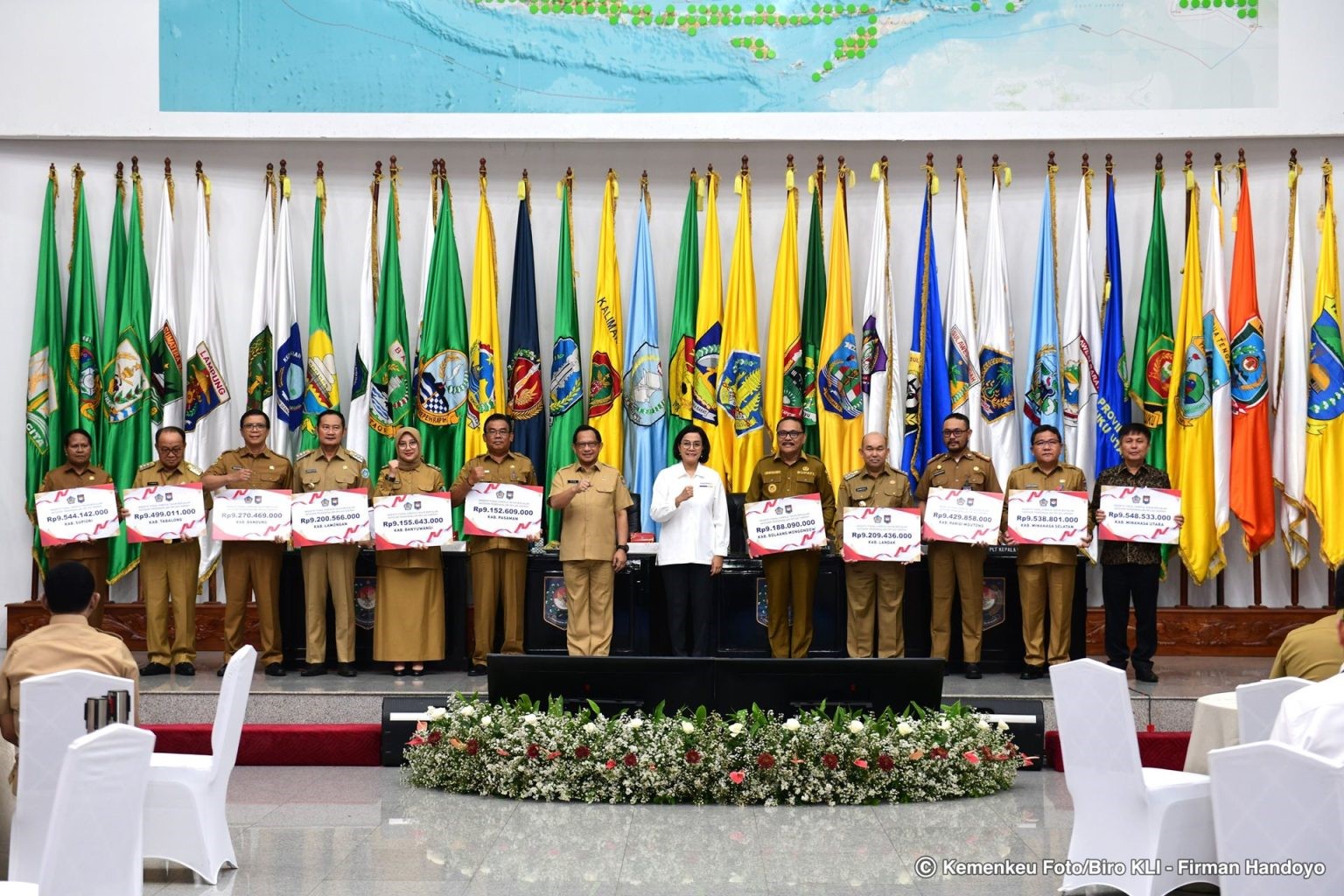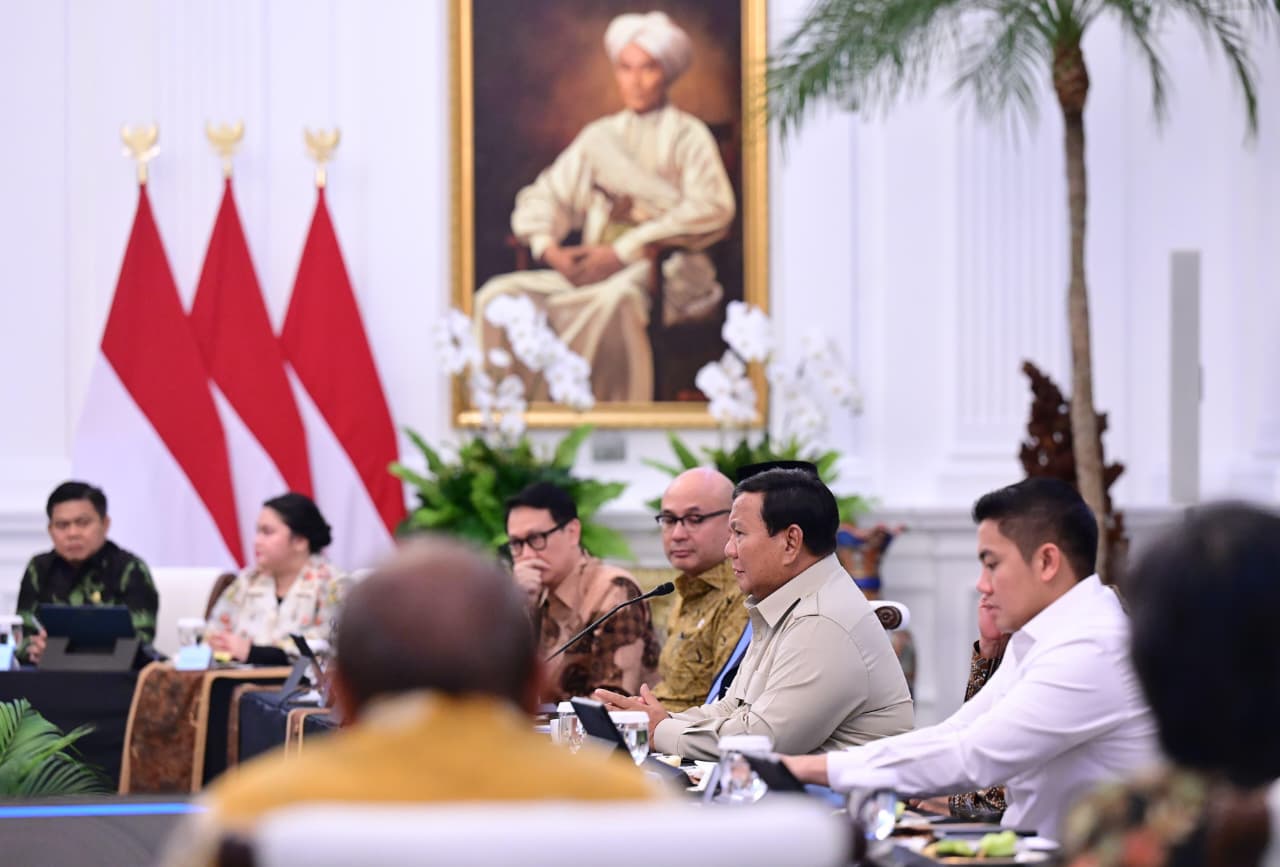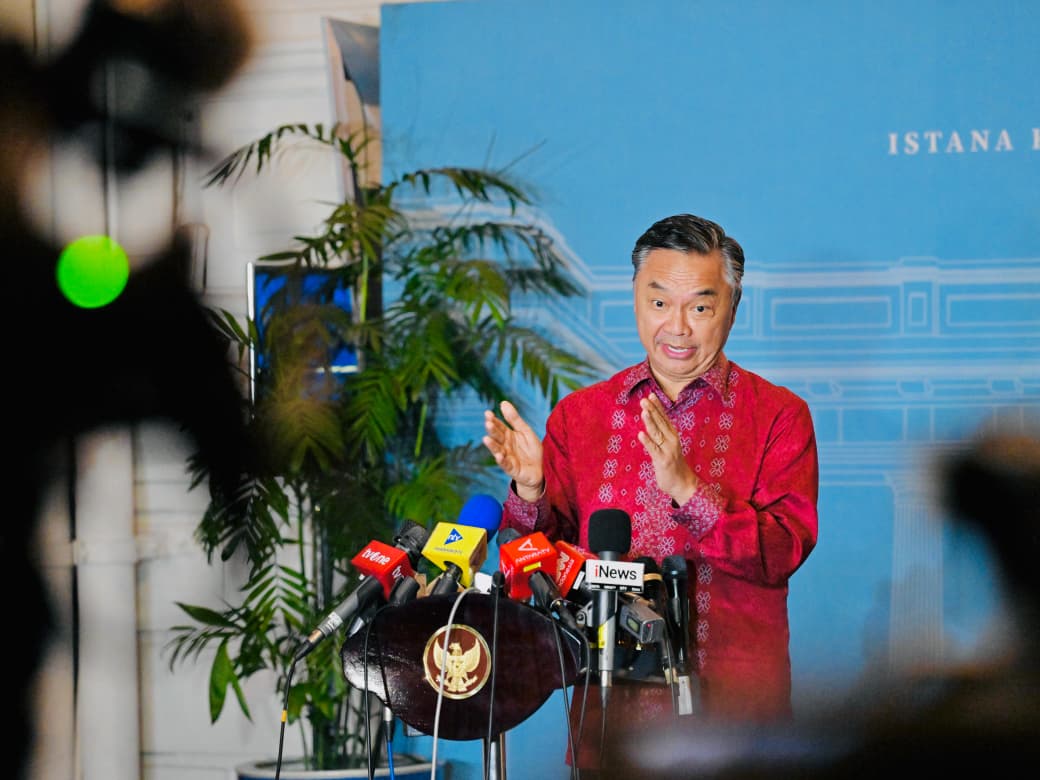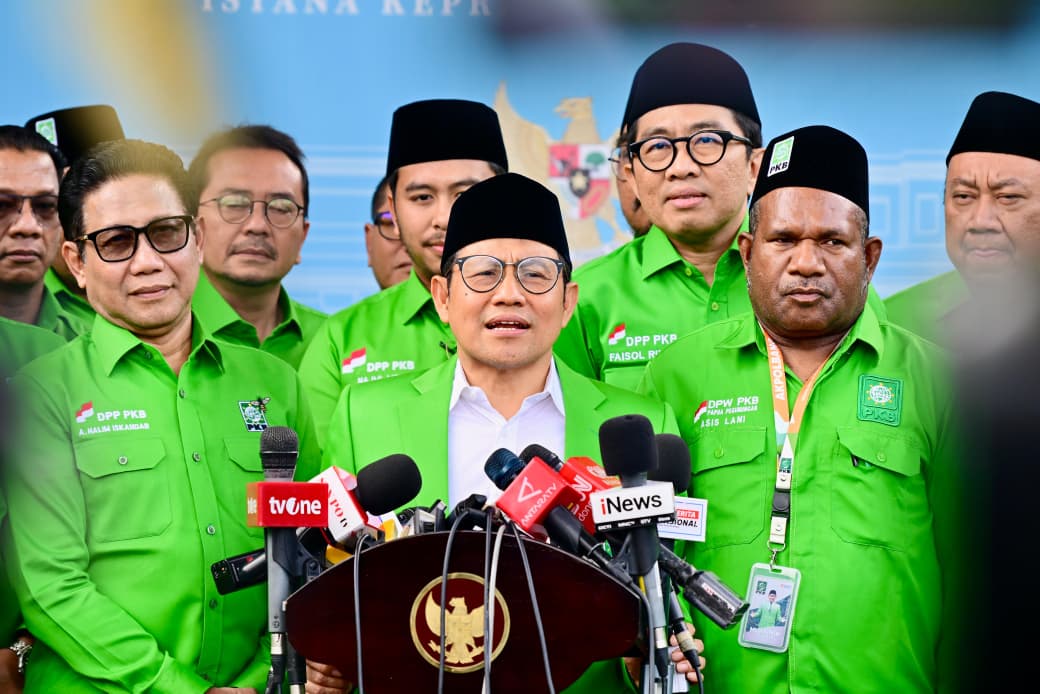Gov’ to Provide Fiscal Incentives to Regions Able to Control Inflation

Minister of Finance Sri Mulyani and Minister of Home Affairs Tito Karnavian symbolically hand over fiscal incentives for regions that are able to control inflation in the 3rd period, Monday (11/06), at the office of Ministry of Home Affairs, Jakarta. (Photo by: PR of Ministry of Finance)
The Government has announced that it is providing fiscal incentives for regional governments that are able to control inflation.
In the 3rd period of 2023, the incentives were provided to 34 regional governments consisting of 3 provinces, 6 cities and 25 regencies with a total budget of Rp340 billion.
The fiscal incentives were symbolically given by Minister of Finance Sri Mulyani Indrawati and Minister of Home Affairs Tito Karnavian at the Regional Inflation Control Meeting and the Presentation of the Current Year Fiscal Incentives Award for Stage III Inflation Control, held at the Ministry of Home Affairs Office, Jakarta, Monday (11/06).
Tito expressed hope that the incentives can strengthen the movement and motivate regional governments to continue to control inflation.
“[This incentives] means a lot to the regional governments. The personnel can work together to get the incentives,” said Tito.
Meanwhile, Minister of Finance Sri Mulyani expressed hope that regional government leaders will use the fiscal incentives to support performance improvements.
“Good performance means you do a great job, your regions do a great job and the people also greatly appreciate it. So this is the opportunity to improve public trust and confidence that the state is present, represented by regional apparatus,” said the Minister of Finance.
Fiscal incentives to control regional inflation in the third period of the 2023 Fiscal Year are provided based on Decree of the Minister of Finance (KMK) Number 400 of 2023. Regions are assessed based on a number of categories, including implementation of efforts to control inflation, compliance in submitting daily reports, stability of food prices measured through the price control index, and acceleration of expenditure realization which specifically supports inflation control activities in the regions.
“We hope that the incentives allocation will continue to be used by the regional governments to continue to improve the performance of their regions in dealing with inflation, stunting, extreme poverty, and continuing to use the regional budget for domestic products or MSMEs in your area,” Sri said.
Previously, incentives amounting to Rp330 billion were given to 24 regencies, 6 cities and 3 provinces that were successful in controlling inflation in the second period. Meanwhile, in the first period, incentives amounting to Rp330 billion were given to 24 regencies, 6 cities and 3 provinces.
In each period, there are different regions that receive incentives for performance categories in the context of regional inflation control. According to Minister of Finance, this is a sign that the competition between each region to be able to achieve success in controlling inflation is going well.
“Collaborative work between the central government and regional governments in controlling inflation needs to continue to be improved, especially in efforts to face global challenges and uncertainties at the end of 2023 and 2024,” said Sri.
It is hoped that fiscal incentives can further encourage regional governments to consistently accelerate the realization of spending, boost the use of domestic products, maintain price stability and availability of supplies of goods. That way, economic activities in the regions can be more vigorous. This transfer policy to regions is also one of the Government’s policies in optimizing the performance of the state budget as a shock absorber. (Public Relations of Ministry of Home Affairs/Public Relations of Ministry of Finance/UN) (EST/MMB)








